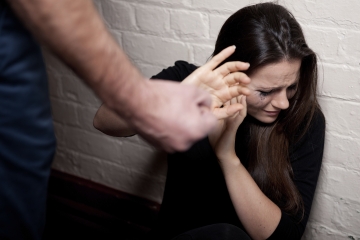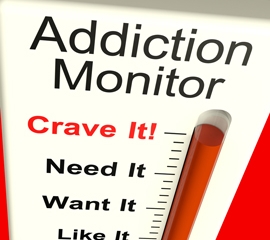How Do I Know if I am Depressed?
-

Depressed? Don’t enjoy Life? Seek Help Are you worrying about the future?
- Do you focus on negative thoughts about yourself and your life?
- Do you feel irritable, agitated and tired?
- Has your sleep pattern changed?
eg. difficulty falling asleep, constantly waking up
or sleeping much more than you normally do? - Do you feel ‘trapped’ and don’t know what to do?
- Have difficulty making decisions?
- Don’t enjoy activities you once liked to do?
- Hardly ever finish a task you started?
“Currently, depression is the FOURTH most significant cause of suffering and disability worldwide (behind heart disease, cancer and traffic accidents). The World Health Organisation (WHO) predicts that by the year 2020, depression will be the SECOND most debilitating human condition worldwide.
Such alarming statistics were quoted by Dr Michael Yapko, Ph.D at his seminar in Perth, Western Australia in March, 2000 – and we are on the way to reaching this figure. It has been estimated that 1 in 4 women and 1 in 6 men in Australia are currently suffering from a depressive illness (Mental Health Education & Resource Centre, Australia).
According to Dr Michael Yapko, who has more than 30 years experience in the field of psychology, marital problems and depression are closely linked and children of depressed parents are THREE times more likely to develop depression.
Inquire Now how Counselling or Hypnotherapy Can Help You With Depression
Post-Natal Depression * Is there a new baby in the family? Post Natal depression can develop following the birth of a child and interfere dramatically with the mother’s ability to nurture her young baby; it is also acknowledged that this lack of nurturing can have a negative effect on the baby who may display symptoms of emotional insecurity.
Relationship Problems and Marital Conflict Depression of either partner in the relationship can lead to relationship problems and can escalate marital conflict; it can also have a profound effect on children in the family. Children too can develop depressive symptoms.
Depression is not something to feel guilty about nor is it anything to be ashamed of. Depression is certainly not a sign of weakness.
Depression is not something that an individual can just ‘get over’ and in no way reflects on the individual’s personal strength. The good news is that depression is treatable and chances of recovery are very good.For most people, after a period of time, and with the help and support of a trusted professional, the enjoyment of life can surface again. Much research has been undertaken on the subject of depression over many decades and our understanding of this common problem has seen attitudes and treatment change to better reflect the different types of depression that can develop. There may be one single reason for depression or it could develop from a number of inter-related factors.
There are many different types of depressive illnesses and symptoms can range from mild, to moderate, to severe.
Depression is generally classified as either ‘endogenous depression’ or ‘reactive depression’.
Endogenous Depression Endogenous Depression is a biological condition which occurs due to changes in various brain chemicals. One type of endogenous depression is ‘bipolar affective disorder’ whereby a person can experience extremes of mood, i.e. the ‘highs’ and periods of depressed mood. Note: Medical intervention is needed in the form of prescription medication for clinical conditions such as bipolar disorder. However, It is acknowledged by both the medical and psychological disciplines that depression can also be related to lifestyle factors (this is known as ‘reactive depression’) and that the symptoms are not a cause of some genetic or biochemical imbalance.
Reactive Depression Reactive depression refers to a person’s response to a life event such as:
Unhappy Relationship | Pressures of family life | Relationship Conflict | Separation | Divorce | Work stress |Losing one’s job | Financial pressures | Chronic Illness or Injury | Death of a loved one | Death of a pet | Homesickness. Any life changing event that has an effect on a person’s general Quality of Life can result in a person experiencing a depressive symptoms.
Depression, Stress and Self Esteem Stressful events that impact on a person’s self-esteem have been found to produce a higher rate of depression and personality types have been found to correlate with depression. Research evidence shows that people who tend to be highly anxious, sensitive to criticism or are perfectionists, have a greater risk of developing depression.
The Difference Between Feeling ‘Down’ and Feeling ‘Depressed’ When people say ‘I’m depressed’ they may be feeling ‘sad’, ‘upset’, ‘disappointed’ or generally feeling ‘down’ and these feelings may have surfaced for no apparent reason or perhaps the result of some day-day event and may disappear again after a few hours or a few days. This is quite normal. However, when depressive symptoms are more intense, persist for more than two weeks and are impacting on a person’s ability to function in their day to day life, then there is a need to seek professional help.





